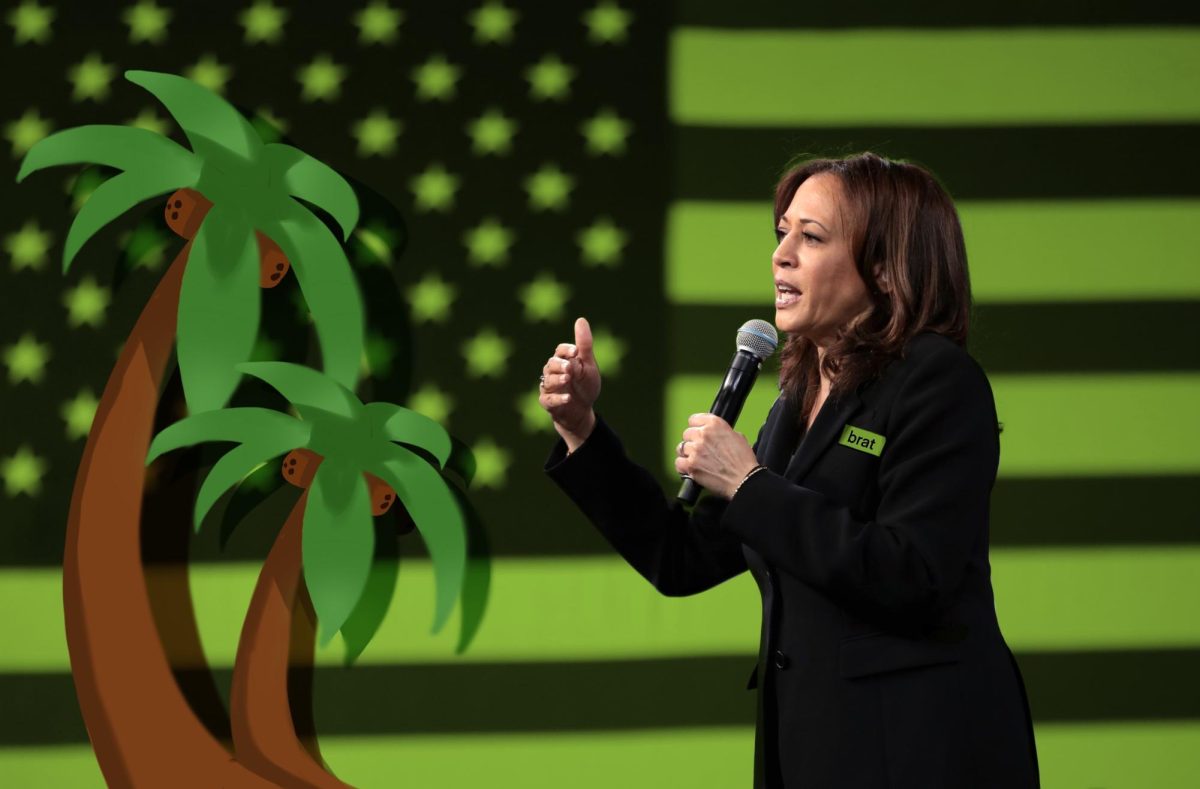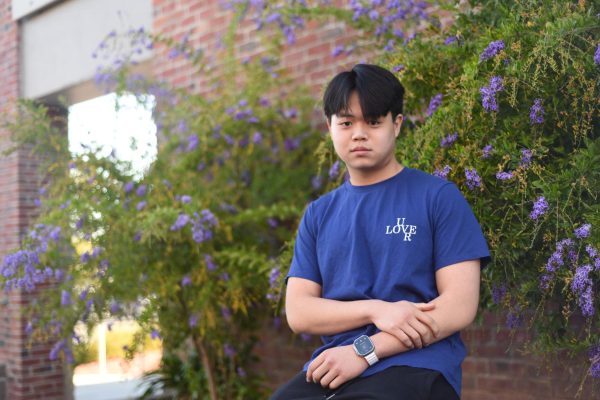On July 21, English musical artist Charli XCX posted on X in reference to her newest album “BRAT” in a show of support for Vice President Kamala Harris. Earlier that day, President Joe Biden had dropped out of the presidential race and endorsed Harris as the new Democratic presidential candidate. Charli XCX’s tweet launched a series of memes and videos revolving around viral moments from Harris’ career, posted alongside trending audios and songs, including remixed songs from “BRAT.”
In response to younger audiences making memes of the presidential candidate, Harris’ TikTok account shifted from clips of debates and current news to the memes trending online. One of the most popular memes comes from a speech Harris gave in May 2023, with her line, “You think you just fell out of a coconut tree?” making national news and reaching demographics less involved in social media.
MVHS alum ‘24 Aashi Venkat recalls seeing the memes surrounding Kamala Harris for the first time in July of 2024, remarking on the mostly positive reception she noticed from younger audiences.
“I think that the ‘BRAT’ thing is doing really well just because the audience that Charli XCX has tends to be more Democratic, so the people who align with her music generally align with Kamala Harris as well,” Venkat said. “I think that Harris using it in her campaigning scheme is a smart idea just because on TikTok it does really well. You’re appealing to people who like the song and if the song shows up on their ‘For You’ page, they’re bound to actually like it and respect you.”
Venkat says that the Harris-Walz campaign’s appeal to internet culture is a crucial way to reach voters, especially because social media platforms are a primary source of news for many people, including Venkat herself.
“Social media makes people more aware of what’s going on in the world,” Venkat said. “There was the whole situation with the overturning of Roe v. Wade two years ago — I figured that out through social media. It’s done a really good job in terms of keeping people aware as well as keeping people updated on what’s going on and well connected because politicians have platforms.”
A Pew Research Center Poll in 2023 revealed that 31% of U.S. adults occasionally get news from social media and 19% do so often. MVHS Leadership advisor Kenneth Gan says this is reflected in the marketing for the upcoming 2024 election, where he points out an increase in election marketing over social media. Paired with his own frequent use of social media, Gan says that social media has been a bigger influence on him compared to previous election cycles where he would get his information from watching televised debates, reading candidate bios or Google searches.
The concept of election advertising catering to younger voters through relatable online content is not entirely unique to the 2024 election. An earlier example of using media online to market a campaign is former President Barack Obama’s 2012 presidential campaign where he published Spotify playlists – typically featuring popular music that appealed to a younger audience.
“Election marketing strategies have been changed to be more centralized on platforms that people are using,” Venkat said. “Harris is changing her marketing strategy depending on what platform she’s on. On Instagram, it’s very millennial. She’s just putting information out there. But on TikTok, it’s more of Kamala HQ, where she’s posting memes to relate to people. Now it’s gotten to the point where appealing to different generations will help attract the massive majority of voters. Whereas before it was, ‘Here is what I am, take it or leave it.’”
The enthusiastic reaction to Kamala HQ sparked a deeper interest in politics for MVHS alum ‘24 Sarah Liu, which led to deeper research and analysis of the candidates outside of their participation in pop culture.
“If I see memes about other politicians that are less well known, I’ll go and search them up and I’ll learn more about their policies,” Liu said. “‘BRAT’ culture or the coconut meme is not really representative of Harris’ policies or her stances on foreign policy. It’s more about her personality or the type of campaign it is running.”
Although Harris’ attempt to engage with younger audiences through pop culture and social media is doing well with her target audience, it may also put off older voters who are looking for a more “serious” candidate, according to Liu. She explains that there is a gap in cultural understanding between the younger and older generations, so older generations might just be confused.
As Harris racks up endorsements from high-profile celebrities, including Charli XCX, Megan Thee Stallion and Ariana Grande, she is becoming increasingly appealing to an audience of young adults who follow them. However, Venkat worries that many of these young voters will choose to endorse Harris solely due to meme content and the celebrities that support her, not considering the fact that Harris may not personally have a hand in the “relatable” content being pushed out around her campaign.
“I feel like you can’t really look at social media as a reliable depiction of their character just because it’s their team running it — it isn’t really them,” Venkat said. “It’s honestly questionable whether or not they even have a say as to what’s published.”
Venkat stresses the importance of researching candidates’ policies and plans for the future before voting. Liu agrees, citing the ability to come to your own conclusions as the most important part of the voting process. She tries to implement research in all of her political decisions, rather than following whatever she reads online. After all, misinformation is especially rampant around elections, and Gan warns that it can be difficult to spot.
“Social media is a lens to consume information and consume knowledge and there’s a lot of fake stuff on social media and there’s a lot of conspiracy theories,” Gan said. “I try to be a conscious consumer of media. You should be understanding and do your due diligence on what’s real and what’s fake, with no black-and-white lens.”



















